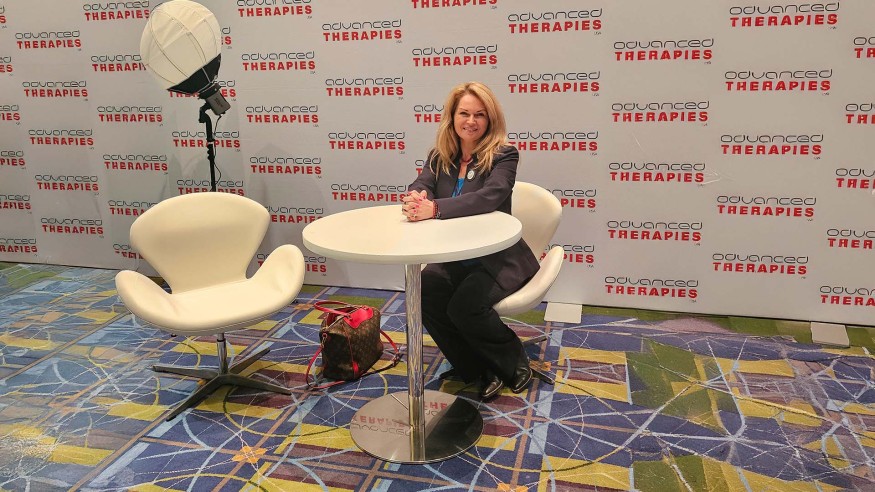
The biopharmaceutical industry is one of the most complex and high-stakes arenas in healthcare, where innovation must survive years of scientific, regulatory, and financial hurdles before reaching patients. For more than two decades, Dr. Stella Vnook has been at the forefront of navigating this landscape, guiding breakthrough concepts through the long journey of regulatory approvals, clinical trials, funding, and market access until they become therapies available to patients.
From her early career in oncology and healthcare to leading global biotech ventures, Dr. Vnook has made it her mission to bridge the persistent gap between groundbreaking research and accessible therapies. At the helm of Agile Consulting Group, she has positioned herself not as the inventor but as what she calls "the enabler" who helps transformative ideas become lifesaving treatments.
Bridging the Valley of Death in Drug Development
Biopharma is notorious for its staggering attrition rates. Only 7.9 percent of drugs ultimately gain FDA approval, with critical failures occurring before trials even begin. "Out of 25,000 invention disclosures, just 714 new products reached the market," says Dr. Vnook. The statistics are more than numbers; they represent patients left waiting for solutions that never arrive. That reality drives Agile Consulting Group's philosophy. Rather than treating innovation as a chaotic process of trial and error, Dr. Vnook believes in building a systematic bridge between early-stage science and commercialization. "It takes more than good science," she says. "It takes disciplined strategy that evolves with every stage, from university research to IND, from phase two to phase three."
The Economics of Biotech
Dr. Vnook often points to what she calls Earl's Law, a coined term she uses to describe the paradox of modern drug development. While Moore's Law suggests technology becomes cheaper and faster over time, biopharma has followed the opposite trajectory. "For decades, the cost to bring a new drug to market has doubled while approvals per dollar have halved," she says. In the 1970s, a new therapy could reach patients for $180 million, adjusted for inflation. Today, the Tufts Center estimates costs at $2.5 to $3 billion.
Despite advances such as gene-editing tools like CRISPR, artificial intelligence platforms that accelerate data analysis, and biomarkers that improve how diseases are detected and monitored, the rate of successfully developing and approving new drugs has actually declined. Fewer therapies are reaching patients despite more powerful tools at scientists' disposal. "Every step costs more and takes longer," she reflects. "We cannot continue on that path. Investors are becoming skeptical. My principle has always been to bring structure into what is often seen as chaos."
Lessons from Building and Restructuring Companies
Dr. Vnook's career spans IPOs, M&A, licensing, and leading biotech firms through turnarounds. What distinguishes the companies that succeed, she says, is adaptability and the ability to assemble the right team for each stage of growth. "An early-stage company needs translational scientists, IP strategy, and regulatory clarity," she explains. "A late-stage company requires payer access, trial operators, and manufacturing scale-up. Knowing when to bring in experts is critical."
At Likarda, for example, the company exited its animal health portfolio to refocus on human therapeutics, while also generating revenue by offering its hydrogel encapsulation platform as a service to more than 30 clients. "We had to get creative," Dr. Vnook says. "We could not build a 10-person business development team, but through strategic partnerships, we were able to put our technology on the radar of large pharma."
Passion for Patients
For Dr. Vnook, the motivation behind each decision is deeply personal. She recalls letters from patients who, thanks to new therapies, could celebrate birthdays or resume daily activities once thought impossible. "Numbers and economics matter, but nothing substitutes for the fact that there are people who desperately need treatment," she says. "What drives me is the child who lives longer because innovation reached the market in time."
This grounding in patient care keeps her focused even when the biotech market stalls. The recent wave of companies leaving Nasdaq or closing their doors underscores the urgency of her mission. "2024 and 2025 have been awakening years," she observes. "We have had to become more creative, more resilient than ever."
The Future of Agile Consulting Group
Looking ahead, Dr. Vnook sees Agile Consulting Group as a spark for the next generation of therapies. By providing a flexible, C-suite-level team that adapts to each stage of development, the firm enables startups, universities, and venture-backed companies to accelerate innovation without being derailed by structural gaps. "We are not the inventors," Dr. Vnook says. "We are the enablers. Between the brilliant spark of an idea and the ultimate prescription, there are countless steps. Our goal is to build that bridge so that more patients can live better, longer lives."
To learn more about Dr. Stella Vnook's work, visit her LinkedIn or Agile Consulting Group's website.
© 2026 ScienceTimes.com All rights reserved. Do not reproduce without permission. The window to the world of Science Times.












